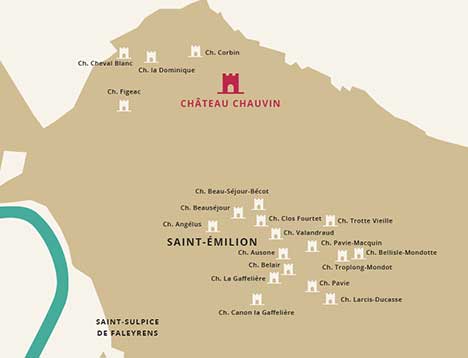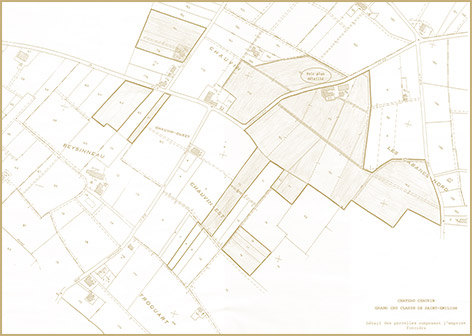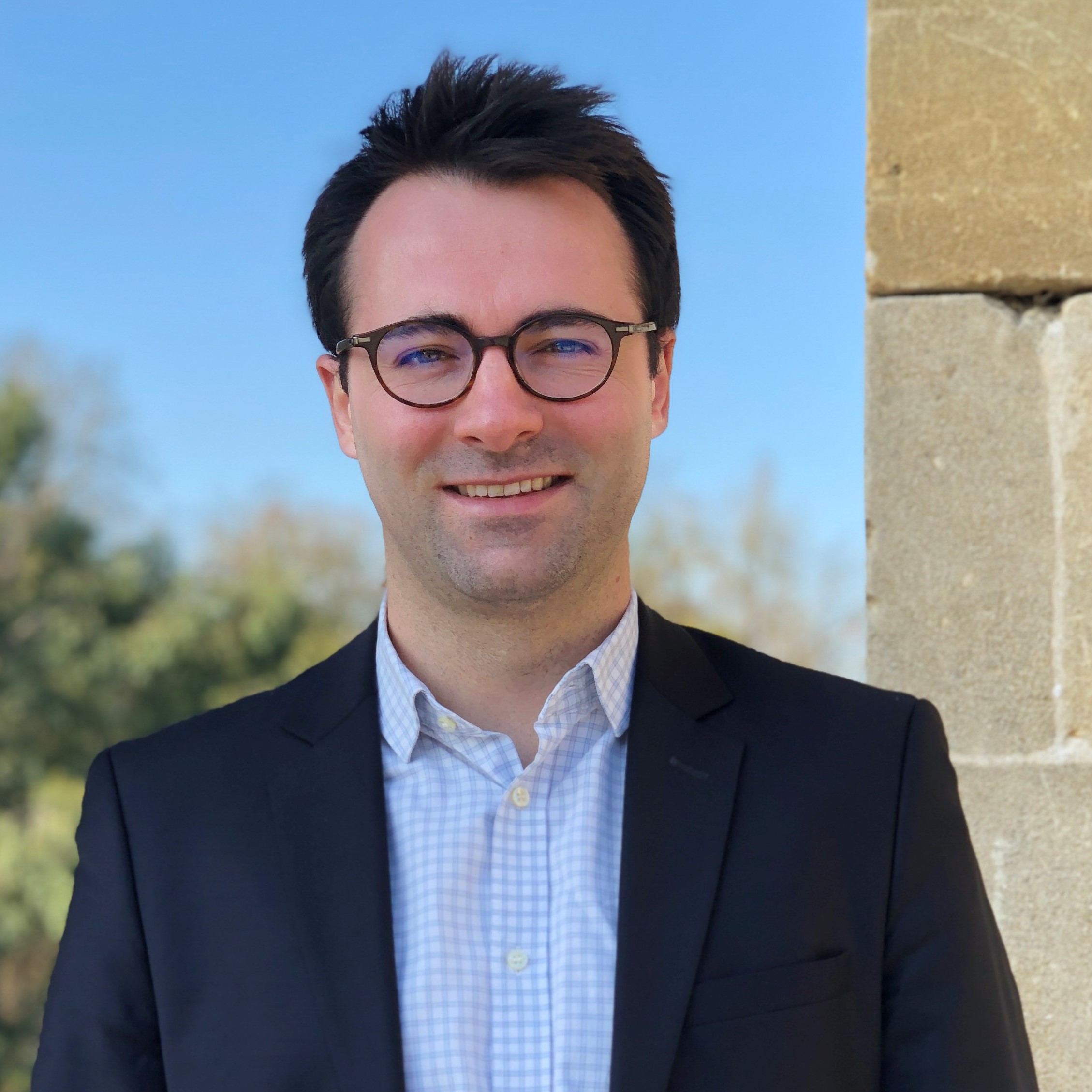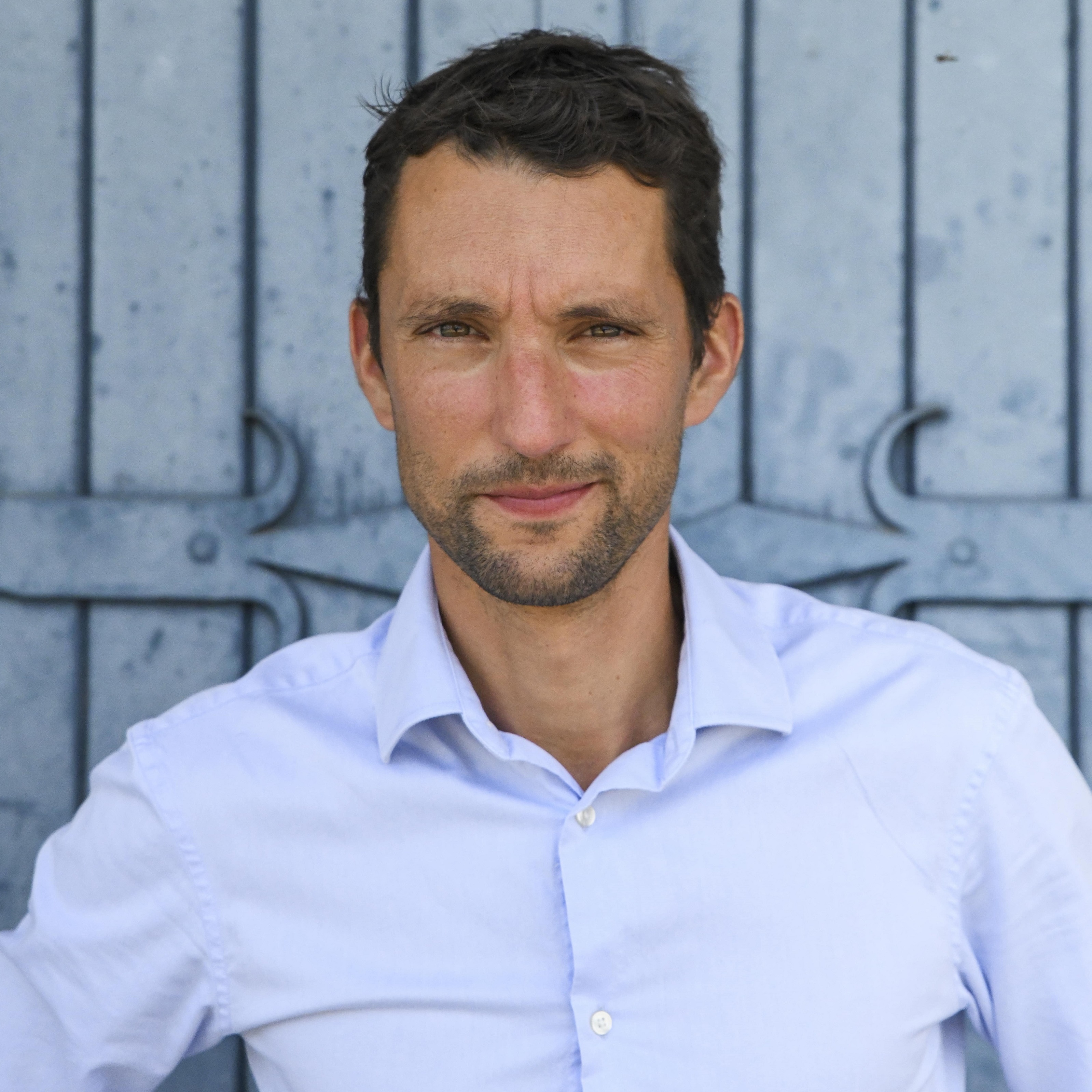head
Château Chauvin was acquired by Sylvie Cazes in May 2014.
This beautiful estate of 15 hectares is located in the north-west part
of Saint-Émilion, close to the Pomerol appellation.
History
1852-2014
A history of dedication
1852
THE DIVISION OF THE FIEFDOM OF CORBIN
The smallholding of Chauvin was previously part of the ancient grand fiefdom of Corbin.
This fiefdom was divided into multiple properties at an auction in 1852.
Chauvin was then acquired by Jean Fourcaud-Laussac, who had just bought what was to become Château Cheval Blanc. At this time, major soil drainage work took place on both estates.
1891
VICTOR ONDET’S “FOLLY”
His business prospered and Victor Ondet gave in to the bourgeois fashion of the time and set about looking for a country residence, delightfully named a “folly”: this is how he came to buy the Chauvin estate, in 1891.
The property already had vineyards and its wine was well known.
1954
CHAUVIN ACQUIRES ITS RIGHTFUL PLACE
Then came the turn of Henri Ondet, who was to expand Château Chauvin to its current dimension while safeguarding the know-how that had already been built up.
The first classification of Saint-Émilion growths was ratified in 1954. Chauvin was among the growths selected. Since then its classification has been renewed at each revision, including the most recent reorganisation published in 2012.
1989
BÉATRICE AND MARIE-FRANCE ONDET: A DEMANDING DUO
When their father died, Marie-France and Béatrice took over the management of Château Chauvin. For more than 20 years they invested a lot of energy at the service of the property and increased investment.
2014
A NEW PAGE IS TURNED
Sylvie Cazes and her children Julie, Pierre and François Régimbeau bought Château Chauvin in May 2014. They want to continue the work carried out by the Ondet family while giving Chauvin the assets needed to succeed in this new page in its history.A major restructuring programme was quickly put in place, involving the vineyard, viticultural methods and the winemaking.
Jérémie Gravier, a young agricultural engineer, takes over the technical direction of the château in 2015. He now gives the utmost care to this exceptional terroir.
Finally, Julie Régimbeau joined her mother at the head of the property, taking charge of the sales and marketing department. Her mission is to develop the property and its reputation throughout the world.
Major renovation work on the cellars began in January 2021. Architect Philippe Ducos has created a new, innovative vat room, complementary to the existing one, separate barrel cellars, and a new tasting room to allow visitors to discover the property’s wines while taking in the surrounding scenery.
A new visual identity
Beyond the change in graphics, the purpose of this identity is to reflect the values so dear to Sylvie, her children and her team.
While searching through the archives of the property, a Château Chauvin label from 1929 was discovered. This immediately appealed to Sylvie, who decided to use it as the basis for the creation of the new label, while preserving the essence of the Château.
After that, the graphic research went back to the meaning of the word “chauvin”. To be “chauvin” in French means to be proud of your land, to love your land.
To the label dating from 1929, a symbol was therefore added to illustrate its values: Cupid, son of Venus, and the god of Love in Roman mythology, proudly displays a banner depicting a lion, the emblem figuring on the coat of arms of Saint-Emilion, his land that he looks over with a watchful eye.
As from the 2014 vintage, the label showing Cupid straddling a lion represents the attachment of Château Chauvin to the land of Saint-Emilion.
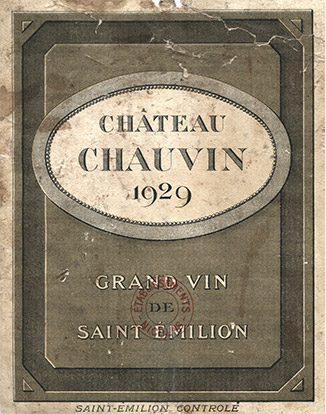
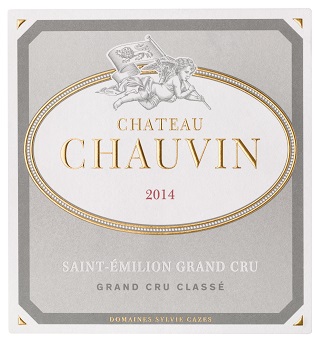
Terroir
SOIL, TOPOGRAPHY, LANDSCAPE, BIODIVERSITY ... THIS
MOSAIC MAKES UP OUR OUTSTANDING TERROIR
Château Chauvin is located to the north-west of Saint-Émilion, half way between Cheval Blanc and the Butte de Rol, close to the Pomerol appellation.
The soil at Chauvin is sandy clay, benefiting from the presence of a pseudogley and an iron-rich sub-soil similar to that found in parts of Pomerol. Thanks to its lower water retention capacity, the soil rapidly succumbs to water shortages, thus allowing the grapes to ripen more quickly.
The efficient drainage of the entire vineyard also allows run-off of water during the wettest periods.
The vineyard is in a single block surrounding the property, thereby facilitating the meticulous vineyard work carried out by the team at the Château. It is mostly planted with Merlot (75%), which expresses itself admirably in this vineyard. The areas showing the most clay are planted with Cabernet Franc (20%) and Cabernet Sauvignon (5%), varieties that fit in perfectly with this type of soil.
The vineyard is managed with the greatest respect for the terroir, so as to bring out its purest expression. Sylvie Cazes and her team strive to produce a wine that is a faithful reflection of the land.
Savoir-Faire
The most qualitative grapes make the greatest wines
Sylvie Cazes has for goal to produce wines embodying the terroir of Château Chauvin. Thus, since she bought the property in May 2014, Sylvie Cazes led a study of the soils and sub-soil, she proceeded to the uprooting of less-productive plots then to a re-planting programme and invested in new tools for the harvesting. Sylvie also put back in place the process of working the soil beneath the vines so as to allow the roots to dig deeper into the clay, and she introduced a new drainage system.
Thanks to all this work in the vineyard, the style of Château Chauvin defines itself, year after year.
Wines
Team
Sylvie Cazes
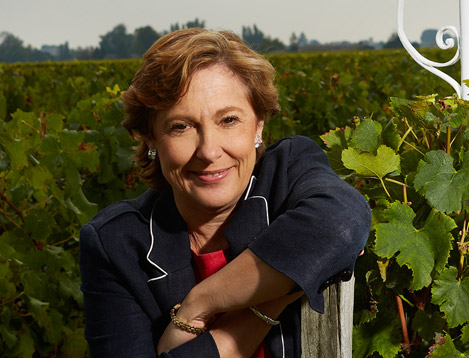
In 1989, after studying foreign languages and training at the Institute of Oenology and then the Institute of Business Administration, Sylvie Cazes joined her brother Jean-Michel Cazes within the group made up of AXA-Millésimes properties (including Château Pichon-Longueville) and those of the Cazes family (including Château Lynch-Bages). In 1995, she became the group’s communications director.
As from 2001, she developed wine tourism activities within the family group. Among them is Bordeaux Saveurs, a travel agency that specialises in designing stays in the most beautiful wine regions, which is now 100% owned by Sylvie Cazes.
In 2011, Sylvie took over the restaurant Le Chapon Fin, an institution of Bordeaux gastronomy. She has breathed new life into the restaurant by putting together a young and creative team.
After an Executive MBA at HEC in Paris, Sylvie Cazes became managing director of the Roederer group’s Bordeaux properties: châteaux Pichon-Longueville Comtesse de Lalande and de Pez. Her mission led her to restructure these two magnificent properties and ensure their continued reputation around the world.
From 2008 to 2012, Sylvie Cazes was elected president of the Union des Grands Crus de Bordeaux and a director of the Conseil des Grands Crus Classés en 1855.
In addition to her work in the wine world, Sylvie Cazes was a Bordeaux city councillor, in charge of promoting the wine industry and wine tourism, from 2008 to 2014. Finally, since 2008, she has been in charge of a project close to the heart of former Bordeaux mayor Alain Juppé, the establishment of the Cité du Vin, a place of discovery, exchange and culture, an illustration of the diversity and richness of wine civilisations, which opened in June 2016 on the banks of the Garonne in Bordeaux.
In 2014, Sylvie acquired Château Chauvin, Grand Cru Classé of Saint-Émilion, now the spearhead of her family group.
Contact
Sylvie Cazes and her children are hoping to welcome you soon at the property
Château Chauvin
1 Les Cabanes Nord, 33330 Saint-Émilion +33 (0)5 57 24 76 25 contact@chateauchauvin.comVisit and Tasting
Château Chauvin is open 7 days a week from April till October from 10am to 5pm, and Monday to Friday from November till March (by appointment)
Visits of 1h in French or English
15€ per person (Free under 18 years old)

